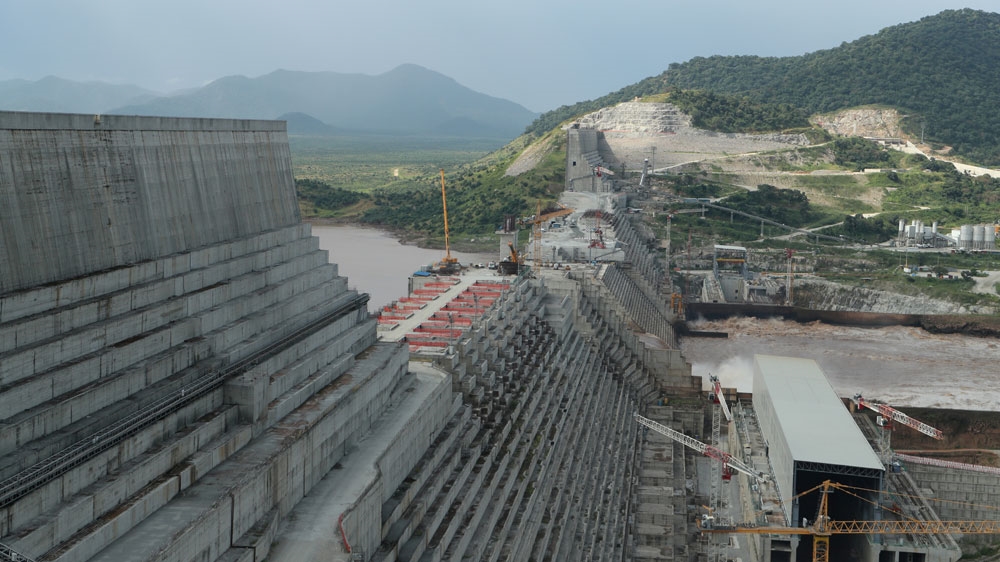
The United States has been "undiplomatic" in its role facilitating talks between three countries on the Nile River over a giant dam, Ethiopia said on Tuesday, but promised to continue negotiations.
Washington has been enabling talks between Ethiopia, Egypt and Sudan to resolve issues over the Grand Ethiopian Renaissance Dam, set to become the largest hydropower plant in Africa.
More:
The multibillion-dollar project has set Addis Ababa and Cairo at loggerheads since Ethiopia broke ground in 2011, prompting Egyptian concerns that filling the huge reservoir too quickly could lower the Nile's flow and impact Egypt's water supply.
The US Department of the Treasury (DoT) stepped in last year after Egyptian President Abdel Fattah el-Sisi put in a request to his ally, US President Donald Trump.
Last week, the DoT said an agreement had been reached and urged Ethiopia to sign "at the earliest possible time", while Egypt said it had signed the "fair and balanced" deal.
However, Ethiopia, which skipped the most recent round of talks, denied any deal had been agreed.
"The recent statement by the US we believe is undiplomatic and does not reflect a great nation like this," Ethiopian Foreign Minister Gedu Andargachew told a news conference on Tuesday.
"We want Americans to play a constructive role. Any other role is unacceptable," he said, warning Washington not to rush the process or try to influence the outcome.
The foreign minister said Ethiopia was building the dam because it has the full right to do so and lift its citizens out of poverty using its natural resources.
El-Sisi's office said later the Egyptian president had been reassured by Trump that the US would stick with the talks until a deal was signed, though it was unclear if the reassurance came after Ethiopia's criticism.
"President Trump emphasised that the US administration will keep up tireless efforts and coordination with Egypt, Sudan and Ethiopia over this vital issue until the three countries sign an agreement over the Renaissance Dam," the Egyptian presidency said in a statement.
Ethiopia FM: Dam is our right
Ethiopia sees the dam as essential for expanding its electric grid and national development but Egypt, which depends on the Nile for 90 percent of its irrigation and drinking water, sees it as an existential threat.
The biggest worry for Egypt is the filling of the dam's enormous reservoir, which can hold 74 billion cubic metres (97 billion cubic yards) of water.
The DoT said on Friday that "final testing and filling should not take place without an agreement" - a position endorsed by Sudan.
The statement implied that if Ethiopia starts filling the dam before a deal is reached "it would breach an international legal principle not to cause significant harm to downstream nations", said William Davison, Ethiopia analyst for International Crisis Group, a conflict-prevention organisation.
"While Ethiopia disagrees with this and has cause to be concerned, it is not clear if the US has any intention to enforce this position, and it is more likely that negotiations continue in one form or another," Davison said.
At Tuesday's news conference, Gedu said Ethiopia was building the dam with all needed safety measures and not causing significant harm to the downstream countries.
The foreign minister said the country felt singled out in the US statement and urged Washington to stay neutral.
"If the Americans apply pressure it should be on all parties, not just our side," he said.







